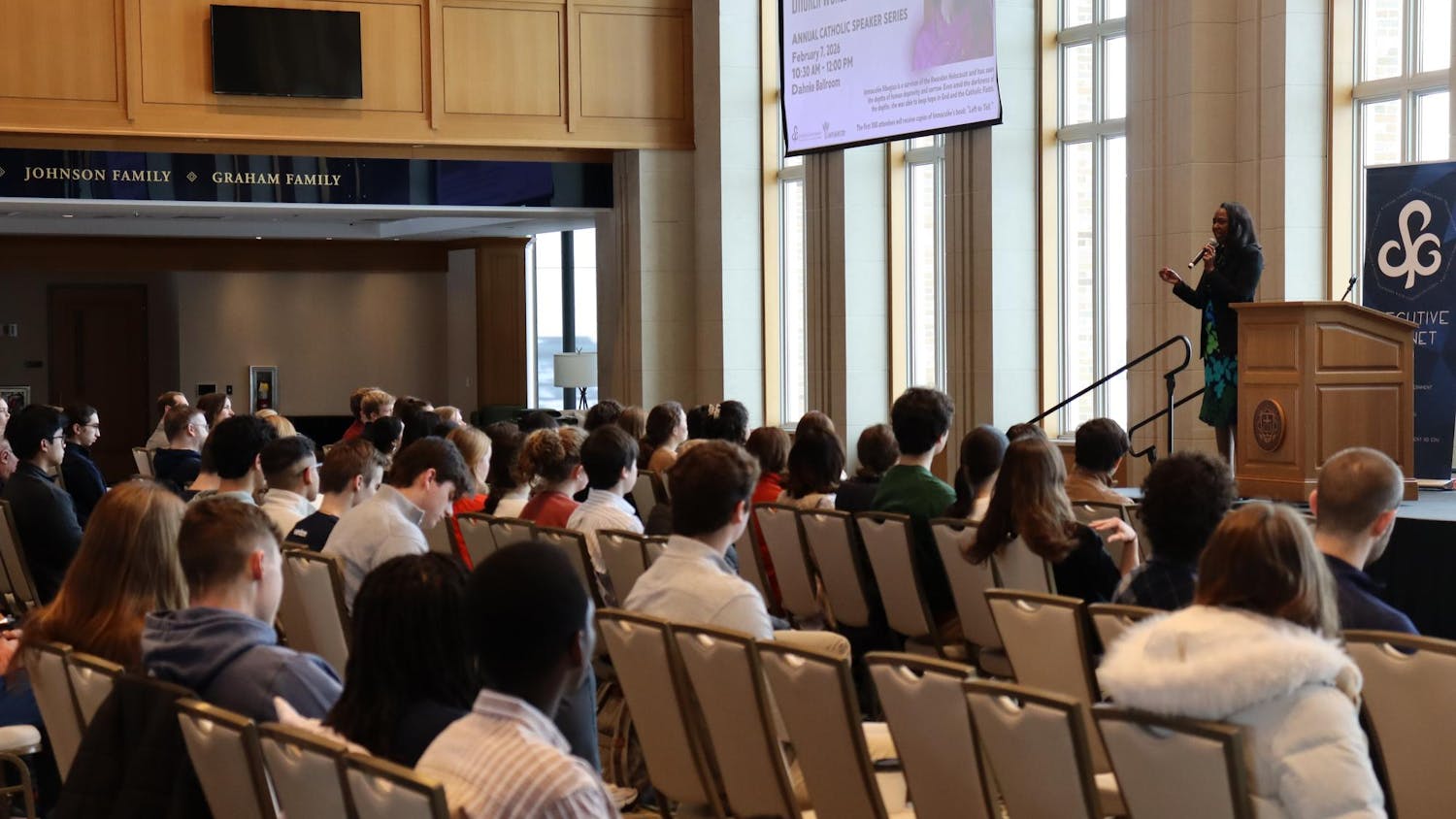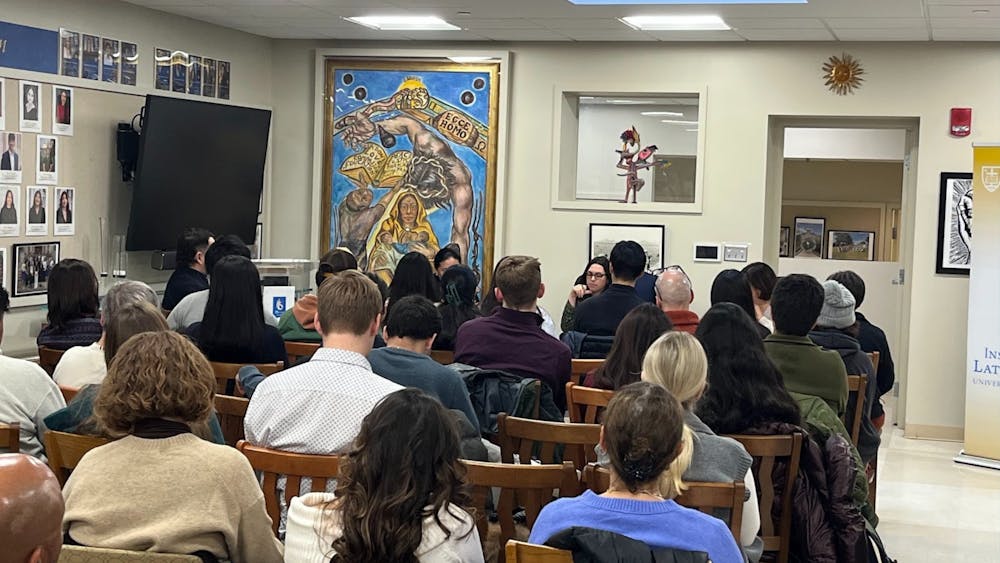Saint Mary’s College hosted noted Pulitzer Prize-winning historian and Harvard professor Annette Gordon-Reed Thursday evening.
Gordon-Reed talked about her new book “On Juneteenth,” a history of Texas written through the history of the author and her family. She mentioned her previous ambivalence about writing a memoir and how this book only came about because she could write about herself and history.
“[Juneteenth is] not the end of something,” Gordon-Reed said. “It’s the beginning of something and it’s the beginning that we’re still on. It’s a journey.”
Gordon-Reed discussed how her book started during the pandemic.
“The impetus for it — sort of stepping outside of what would have been my comfort zone — was thinking about my parents who are no longer living and [how] I missed them,” Gordon-Reed said.
Gordon-Reed said she wondered what they would have made of the pandemic period. She mentioned walking around Central Park with her husband and seeing the overflow tents for hospital patients.
“You know, that sort of overlay of thinking about mortality was always there,” Gordon-Reed said.
Gordon-Reed said that when thinking about Texas, the image people have is incomplete. She explained how Texas bravado and pride created a sense that Texans are “special” in her three years of Texas history.
The main topic of Gordon-Reed’s other books is slavery.
“There’s something about the 1860s, the 1870s that are particularly poignant for me and sad for me because it was a time of great hope for people and to see that hope dashed,” she said.
During the Q&A with associate professor of history and gender and women’s studies, Jamie Wagman, at the end of her lecture, Gordon-Reed was asked about what tools Americans need to confront American history lessons.
“White people who are interested in change have to talk to other white people … Black people shouldn’t be put in the position of having to convince people that we’re people,” she said.
Wagman explained how she thinks “On Juneteenth” will impact conversations on race and history.
“Gordon-Reed’s scholarship always adds and changes national conversations about race and racism, widening readers’ understanding of Black history. She also debunks myths that endure about America,” Wagman said in an email.
Wagman added that she hoped students will learn about the “long road to Juneteenth,” the national holiday that marked the end of slavery. “They will be reminded that the fight for racial equality has not ended,” she said.
After the lecture, students and other attendees stood in line to buy a signed copy of Gordon-Reed’s book.
Saint Mary’s student Teresa Bean said her biggest takeaway from Gordon-Reed’s lecture was “[her] call upon white allies to ... just be politically aware and be prepared to stand up for those you know.”
Wagman said that she wanted to bring Gordon-Reed to campus for many years, calling her “one of the leading scholars on race and history in the nation.”
Gordon-Reed is the author of several books and winner of more than sixteen awards, including the National Book Award for Nonfiction. She is also the recipient of a Guggenheim Fellowship, a MacArthur Fellowship and the National Humanities Medal.
“By reading her work, students can learn so much about research, debunking myths and questioning narratives,” Wagman said.
Read More
Trending









